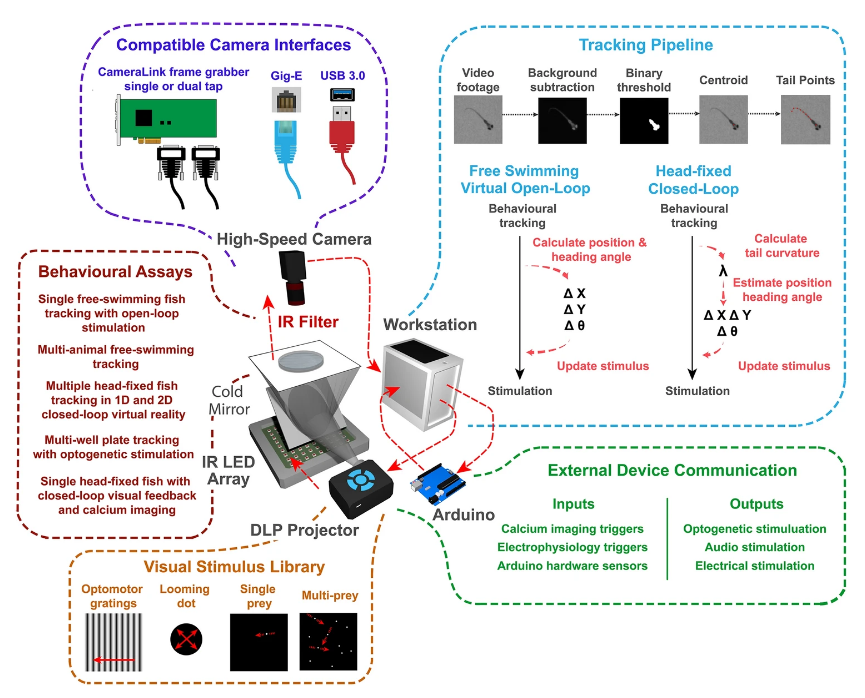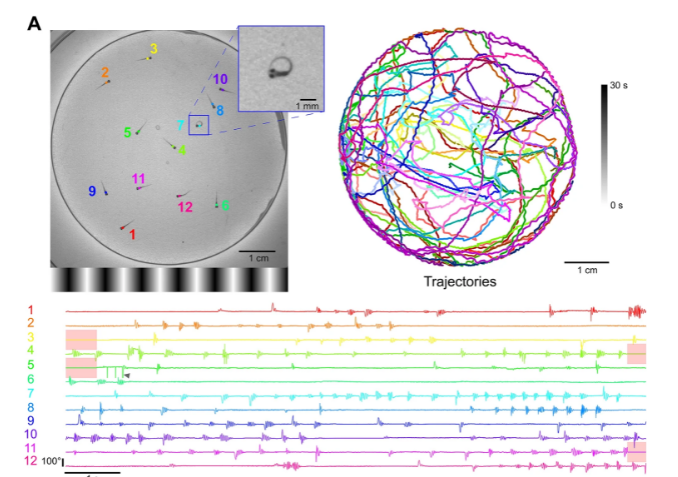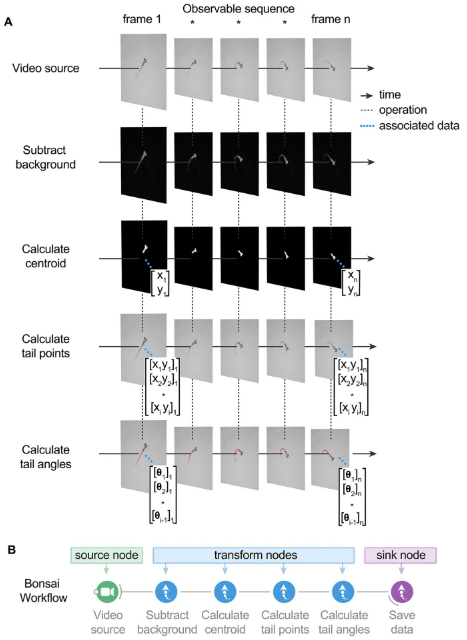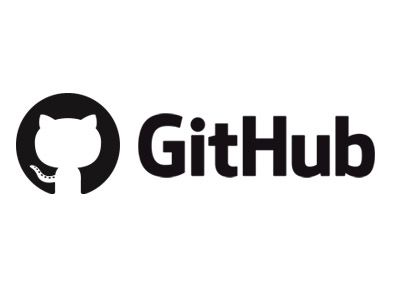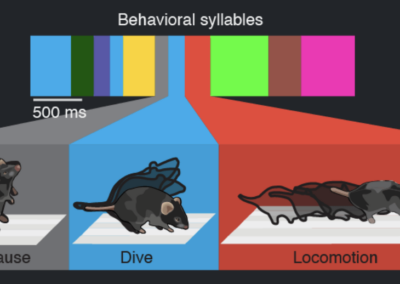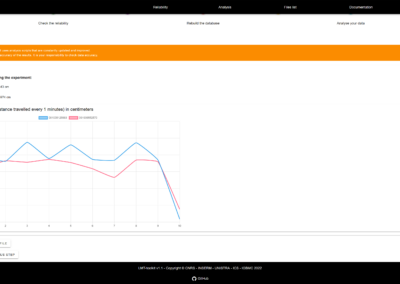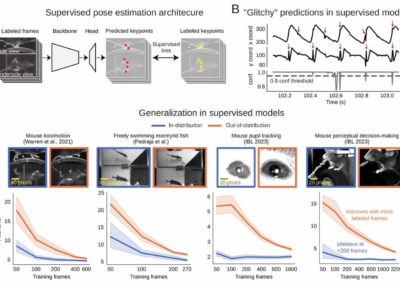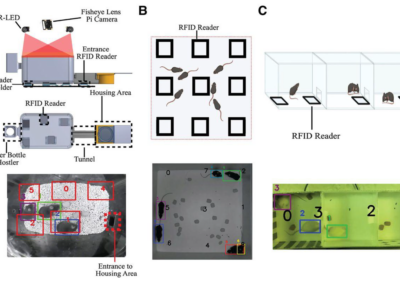BonZeb
Rapid data acquisition and analysis of behavioral and neural data allow neuroscientists to use real-time events to control experimental parameters. These kinds of closed-loop experiments are important for understanding the relationships between sensory and motor systems in awake behaving animals. Zebrafish are a popular model organism for investigating visuomotor integration and lend themselves well to closed-loop experiments. Bonsai is a powerful and flexible programming language for streaming and analyzing data from multiple sources in real time and has been used in a number of closed-loop paradigms. Until recently, Bonsai did not have modules that were specific to high-speed kinematic tracking in small model organisms like zebrafish. Nicholas Guilbeault and colleagues from the University of Toronto thus developed BonZeb, a suite of Bonsai modules for specifically tracking and analyzing zebrafish movements and integrating these data with closed-loop experiments. BonZeb modules can also be used in an open-loop fashion for collecting, analyzing, and integrating data from multiple sources in real time, or from offline sources for batch processing of pre-recorded data. In their recent publication, the authors highlight several implementations of BonZeb for open-loop single or multi-animal swim tracking; closed-loop optomotor swimming in single or multiple head-fixed zebrafish; and closed-loop optogenetic stimulation experiments. Overall, BonZeb offers great utility and flexibility for small model organism researchers.
This research tool was created by your colleagues. Please acknowledge the Principal Investigator, cite the article in which the tool was described, and include an RRID in the Materials and Methods of your future publications. Project portal RRID:SCR_021388; Software RRID:SCR_021392
GitHub Repository
Get access to BonZeb files and instructions on Github.
Read the Paper
Read more about BonZeb from the recent Scientific Reports publication!
Check out projects similar to this!

